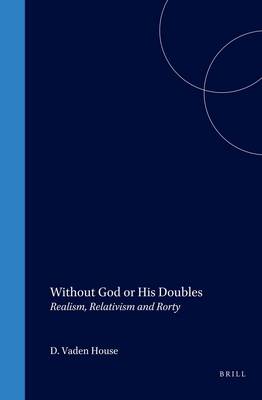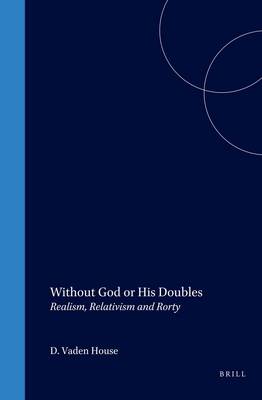
- Afhalen na 1 uur in een winkel met voorraad
- Gratis thuislevering in België vanaf € 30
- Ruim aanbod met 7 miljoen producten
- Afhalen na 1 uur in een winkel met voorraad
- Gratis thuislevering in België vanaf € 30
- Ruim aanbod met 7 miljoen producten
Zoeken
Omschrijving
Without God or His Doubles offers a sympathetic, but critical interpretation of the philosophy of Richard Rorty. Rorty is one of the most widely discussed of contemporary philosophers, but there exist few attempts to deal with the full scope of Rorty's writings in a systematic fashion. This book shows that the unifying theme that runs through Rorty's writings on epistemology, the philosophy of science, the philosophy of mind, the philosophy of language, and political philosophy is a quasi-religious conception of human creativity and human freedom. In other words, Rorty's attempt to avoid both realism and relativism is best understood in relationship to his claim that traditional philosophy has been god-obsessed. The animating spirit of Rorty's philosophy is to complete the Enlightenment project, to completely wean philosophy away from both God and the various god-doubles (Reason, Nature, Mind, Man, Science, Art). Rorty believes that a radical secularity will result in a kind of human emancipation and a heightened sense of human freedom. The book concludes with a critique of Rorty's proposal for philosophy and culture after the final departure of all the gods.
Specificaties
Betrokkenen
- Auteur(s):
- Uitgeverij:
Inhoud
- Aantal bladzijden:
- 172
- Taal:
- Engels
- Reeks:
- Reeksnummer:
- nr. 14
Eigenschappen
- Productcode (EAN):
- 9789004100626
- Verschijningsdatum:
- 1/06/1994
- Uitvoering:
- Hardcover
- Formaat:
- Genaaid
- Afmetingen:
- 162 mm x 242 mm
- Gewicht:
- 458 g

Alleen bij Standaard Boekhandel
+ 421 punten op je klantenkaart van Standaard Boekhandel
Beoordelingen
We publiceren alleen reviews die voldoen aan de voorwaarden voor reviews. Bekijk onze voorwaarden voor reviews.








